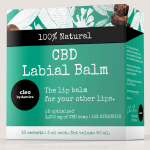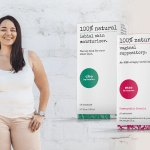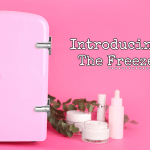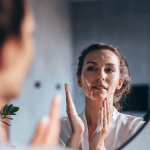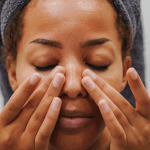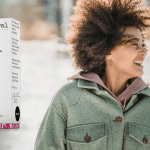As a woman ages, her vagina will naturally lose moisture and elasticity, and vaginal and labial dryness occur for a number of reasons, including cancer therapy, postpartum, perimenopause and menopause in particular.
Many women feel inadequate or even ashamed about this issue. Vaginal dryness and the discomfort and decline in wellbeing and quality of life are an important topic. The problem is – this does not really help to find solutions and feel good. What’s needed is that women become more informed and aware of their body transitioning, as well as more accepting of the changes – and start to open up and talk about it.
Vaginal dryness is a very common during menopause
Nearly 80% of women going through perimenopause and menopause experience vaginal dryness and discomfort. It is the most common issue experienced in these transitioning years.
What happens is that a woman’s ovaries stop producing estrogen, and when her body is not producing enough of this hormone, the lining of the vagina gets thinner and the walls of the vagine lose their ability to stretch like they used too.
When she used to get sexually aroused in the past, her vagina would elongate, the tip of the uterus would lift up slightly, and the lining would produce a clear slippery liquid. Her body was preparing for intercourse, and her bodily changes would make it more comfortable for her. But during perimenopause and menopause, her vagina remains dry, tight, and she doesn’t even feel aroused anymore. For women with vaginal dryness or very sensitive vulva skin, regular use of a safe and all natural vagina moisturizers can be very helpful.
Understand and educate yourself
If a woman educates herself on this issue, she gains understanding of the effects that hormonal changes have on her body and the significance role vaginal pH levels are for preventing dryness and discomfort. The pH of the vagina naturally changes as a woman ages. Before menopause, the vaginal pH will be around 3.5 – 4.5 but during and after menopause, the pH level can rise as high a 6.0. It is crucial to maintain these pH levels to protect herself from any unwanted bacterias and to keep the body in balance. It should also be noted that the labial pH and vaginal ph are different. The pH of the labial skin is typically under 5.0 which keeps the good bacteria attached to the skin. If the pH of the labial skin rises, the good bacteria that protects you and wards off any foreign invaders away. This is essential to help the body balance the good bacteria and reduce the bad.
There are natural alternatives
If you are experiencing any vaginal dryness and discomfort, voice yourself and reach out if you have any questions! I spoke out about it, and this resulted in the development of Mae, the first all natural vaginal suppository designed to support and moisturize the vaginal tract. A customer spoke out about her issues to us and this resulted in the development of Cleo. Thank you to all our customers who willingly speak out to us all the time, with great feedback, lovely messages, and so much support. We make these products for you. We hope that you will continue telling us about your needs so that we can try our best to fulfill them with natural, innovative products that can be used for a lifetime.
Chia Chia Sun,
CEO of Damiva Inc.


